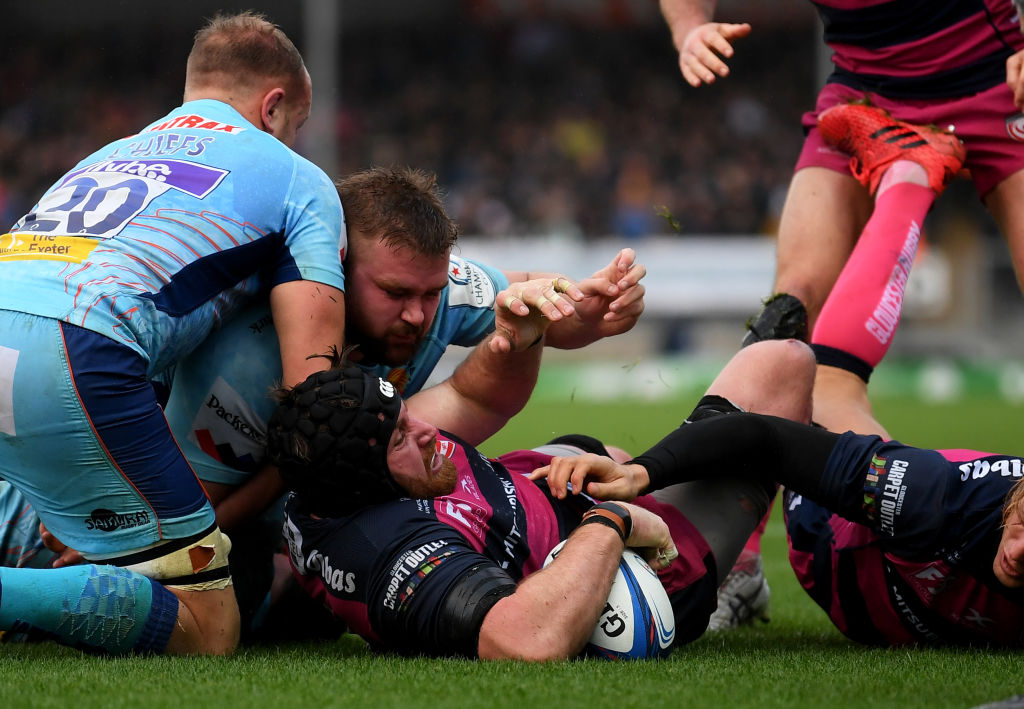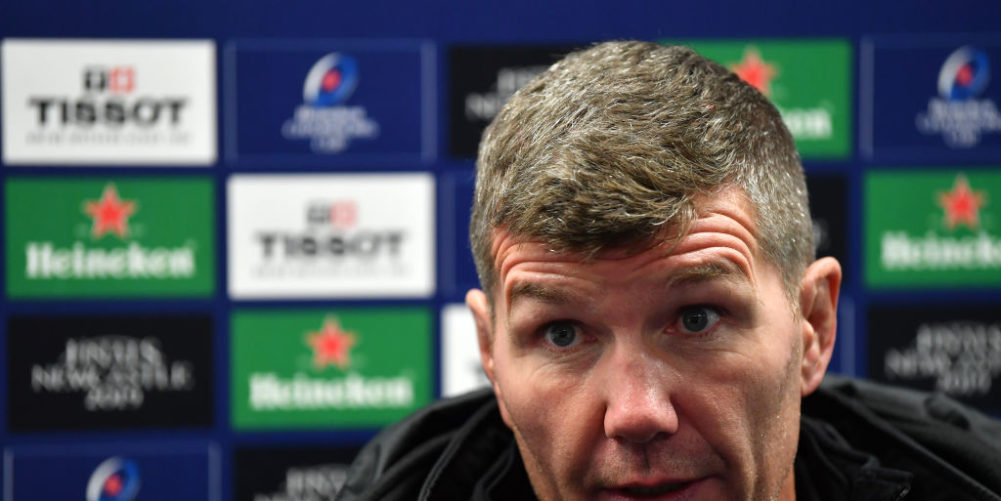IT'S hard to work out why Exeter Chiefs find it such a tough challenge to break out of the pool stages of the European Cup to become a regular presence at the knock-out end of the tournament.
This season is their sixth in the European elite, and they have exited in the pools every time but one, when they lost a spectacular quarter-final to Wasps (25-24) at the Ricoh in 2016.
However, even when the Chiefs did force their way into the last eight, they only did so on points difference over Bordeaux-Begles and Ospreys when all three finished the pool on 16 points.
Exeter had a tough baptism in 2012-13 when they were drawn in the same pool as Clermont and Leinster. They were beaten heavily by Clermont both times, but although they lost home and away to Leinster there was not much separating the teams in either match.
The main concern for Chiefs director of rugby Rob Baxter has to be that they do not appear any closer to cracking the European Cup formula than they were six years ago.
First they allowed Munster to leave Sandy Park with a draw in the opening round, and then they were unable to capitalise on a red card reducing Castres to 14 men for the entire second half despite leading 14-0 at the Stade Pierre Fabre, going down 29-25.
There is a sense that the main reason for Exeter's European struggles is that the packs they come up against when they play Irish and French opposition are simply stronger than those they face in the Premiership.
That theory came unstuck last weekend at Sandy Park when they were beaten 27-19 by a Gloucester outfit which they had overwhelmed on the same ground in the Premiership only a fortnight earlier (23-6).
The loss to Gloucester probably needs an inquest, because it has put more of a hole in the Chiefs reputation than Baxter, their backer Tony Rowe, the Exeter squad, and the Devon club's supporters, will be comfortable with.
After the game Baxter suggested that some of his players are trying too hard, and straying too far from the game plan against European opponents, rather than sticking to what they do well in the Premiership.
Exeter like to play a possession game in which they have a lot of the ball, but when you take that tactical approach and make more errors than usual it can result in you becoming a lot more unstable.
Exeter made lots of mistakes against Gloucester, and it became apparent that if centres like Ollie Devoto, Ian Whitten and Sam Hill do not help their forwards by getting over the gain-line consistently, then life gets more difficult.
If you watch successful European sides like Saracens and Leinster it always seems to be simply a matter of time before they get control and dictate where the game will be won – either by power plays or by applying enough pressure to force crucial errors.

Perhaps it didn't happen for Exeter against Gloucester because they are starting to lose the psychological edge required in Europe, and now it looks as if they will have to wait until next season to put it right in this tournament.
Rugby Union does not have a big change tactically from what you do domestically to what you do in Europe in the same way that football does.
Saracens, for instance, play with the same effectiveness inthe European Cup as they do in the Premiership, and although they raise their game to a higher level of intensity they are not trying to play a different style of game.
The trap that some of the Exeter players might be falling into is trying to be different.
I saw the Munster game and I was waiting for Exeter to do what they do, by ramping up the pressure in the second half. Munster just didn't allow them to take control in the way they are used to, and it might be that when European opponents are more resilient, and don't fold like a deck of cards, that the Chiefs become more frustrated and anxious than they do against most Premiership teams.
Saracens are more experienced, and some of it was earned the hard way. I have seen them overpowered by the very best French sides like Toulon, Clermont and Toulouse, but they learned the lessons, adapted, and came back stronger to be crowned European champions twice in succession in 2016 and 2017.
Players like Owen Farrell, Richard Wigglesworth, Mako Vunipola and Maro Itoje are stronger mentally than most of those in the Premiership.
By comparison, Exeter's regular non-qualification puts them in the same underperforming bracket as the Welsh regions – even though the Scarlets temporarily broke the mould last season.
The first thing Exeter have to get right is to recognise that you have to win all your home games.
You have to start well, and also grab an away bonus point, with the double-header as good an opportunity as any.
If you get four wins, including two bonus point wins at home, you have got your 18 points. One more bonus point should ensure qualification, and Exeter should be a good enough team to do that. There are other teams who struggle to get into the play-offs, like Glasgow, but the harsh reality is that they and the Chiefs have not shown the mental awareness to get over the line.
That surprises me with Exeter, and the buck always stops with the top man. You have a plan, and the players have to execute it. If they don't execute it, then they don't get picked to play next time.
It's easy to criticise coaches, and I'm sure Baxter is as frustrated as the fans, especially as Exeter do not have any trouble scoring tries against most of their English rivals.
Someone like Baxter does not look for excuses, but there are lots of broader reasons why English clubs like Exeter, Leicester, Bath and Wasps, are struggling in Europe. The big one is that Premiership players are not as fresh as their PRO14 and even Top 14 opponents.
If English clubs want to be more competitive they have to strike a better balance between training and playing demands, and conditioning – and the part suitable rest periods have in players peaking at the right time.
JEREMY GUSCOTT


























